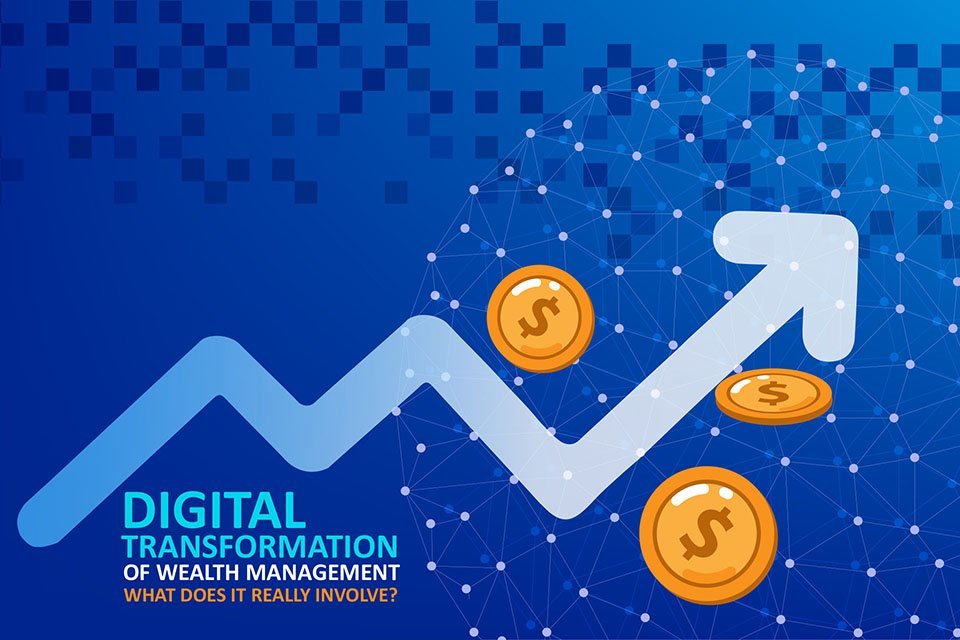Gulf digital transformation in wealth management is reshaping the financial landscape across the region. With rapid adoption of technology, the Gulf Cooperation Council (GCC) countries are embracing fintech, artificial intelligence, blockchain, and cloud-based platforms to modernize how wealth is managed. This shift is not only improving efficiency and transparency but also redefining how individuals, family offices, and institutions engage with financial services.
Wealth management has traditionally been rooted in trust, long-term relationships, and personalized financial advice. However, changing client expectations, global economic trends, and the Gulf’s ambitious visions—such as Saudi Vision 2030 and UAE Centennial 2071—are pushing financial institutions to innovate at an unprecedented pace.
Why Digital Transformation Matters in Wealth Management
The Gulf is home to one of the world’s fastest-growing wealthy populations. According to recent financial reports, the number of high-net-worth individuals (HNWIs) and ultra-high-net-worth individuals (UHNWIs) in the GCC is expected to rise sharply over the next decade. With this surge comes increasing demand for secure, personalized, and tech-driven wealth management solutions.
Key drivers of transformation include:
- Changing demographics: A younger, tech-savvy generation of investors is entering the market.
- Regulatory evolution: Governments across the Gulf are encouraging digital adoption in banking and finance.
- Global competition: Regional wealth managers must keep pace with international fintech players.
- Client expectations: Investors now demand instant access, personalized insights, and seamless digital experiences.
Digital Tools Powering Gulf Wealth Management
Several technologies are fueling this transformation.
Artificial Intelligence (AI) and Machine Learning
AI is helping financial institutions in the Gulf predict market trends, automate trading, and deliver hyper-personalized financial advice. Robo-advisors, powered by AI, are now offering tailored investment strategies at lower costs, making wealth management more inclusive.
Blockchain and Digital Assets
Blockchain is creating new opportunities for secure transactions, fraud prevention, and even tokenized investments. Dubai, in particular, has positioned itself as a hub for blockchain innovation, with initiatives supporting digital asset adoption and regulatory clarity.
Cloud Computing
Cloud-based wealth management platforms are enhancing data security, scalability, and client interaction. Banks and investment firms in the UAE, Saudi Arabia, and Qatar are increasingly migrating to cloud infrastructure to improve operational agility.
Fintech Integration
Partnerships between traditional banks and fintech startups are accelerating innovation. From mobile-first wealth apps to open banking solutions, fintech collaboration is enabling faster adoption of digital wealth tools.

Gulf Governments Driving the Change
Digital transformation in wealth management is not just a private sector trend—it is strongly supported by government policy.
- Saudi Arabia’s Vision 2030 emphasizes diversification of the economy and growth in financial services through digitization.
- The UAE’s Smart Dubai initiative and Abu Dhabi Global Market (ADGM) encourage fintech startups to innovate within wealth management.
- Qatar National Vision 2030 highlights technology as central to building a knowledge-based economy, with financial services playing a major role.
- Kuwait and Bahrain are strengthening digital banking regulations to attract global investors and fintech leaders.
By aligning wealth management with broader digital goals, Gulf states are creating a supportive ecosystem for long-term transformation.
Client-Centric Wealth Management in the Digital Era
At the heart of this shift is the client. Today’s investors are demanding:
- Mobile-first solutions for instant portfolio tracking.
- Data-driven insights for smarter financial planning.
- Transparent reporting to build trust and accountability.
- Personalization based on lifestyle, goals, and risk appetite.
Family offices, which manage the assets of ultra-wealthy families in the Gulf, are also turning to digital platforms for enhanced control, governance, and intergenerational wealth transfer.
Challenges Facing Digital Transformation in Wealth Management
Despite the progress, the journey is not without challenges.
- Cybersecurity risks: Increased digitization makes wealth platforms more vulnerable to cyberattacks.
- Regulatory complexity: Each GCC country has its own regulatory framework, creating compliance challenges.
- Talent gap: A shortage of skilled professionals in AI, fintech, and blockchain remains a hurdle.
- Adoption barriers: Older investors may be hesitant to fully embrace digital solutions.
Addressing these challenges will be critical for Gulf wealth managers to sustain momentum and compete globally.

The Rise of Sustainable and Sharia-Compliant Digital Wealth
A unique aspect of wealth management in the Gulf is the demand for Sharia-compliant investment options. Digital platforms are now offering Islamic wealth management tools, ensuring compliance while leveraging modern technology.
In addition, sustainability and Environmental, Social, and Governance (ESG) investing are gaining traction. Tech-driven wealth platforms are enabling clients to track ESG performance and align investments with ethical and sustainable goals.
The Future of Gulf Wealth Management
Looking ahead, the Gulf digital transformation in wealth management will continue to accelerate. Experts predict:
- More robo-advisors providing personalized financial advice.
- Expansion of digital currencies and tokenized assets.
- Advanced AI-powered risk management.
- Greater cross-border fintech collaboration within the GCC.
- Deep integration of ESG and Sharia-compliant portfolios.
Wealth management firms that successfully balance innovation with trust, compliance, and client-centricity will thrive in this new digital-first era.
Conclusion
Gulf digital transformation in wealth management is more than a trend—it is a defining shift that is shaping the region’s economic future. By leveraging AI, blockchain, fintech, and cloud solutions, Gulf states are building a modern financial ecosystem that balances tradition with innovation.
For clients, this means more accessible, transparent, and personalized wealth management services. For institutions, it offers opportunities to expand, compete, and lead on the global stage.
As governments, banks, and fintech startups collaborate, the Gulf is positioning itself as a global leader in digital wealth management. This transformation is not only changing how wealth is managed but also how financial trust, legacy, and prosperity are secured for future generations.
Do follow on: Instagram
Read More: Qatar: Pioneering Cybersecurity and Innovation in the Digital Era



